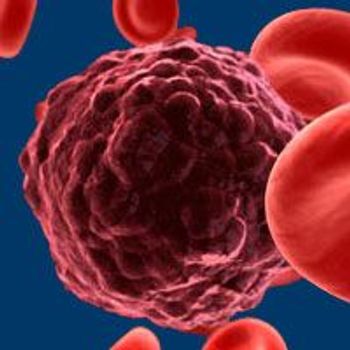
A CAR T-cell therapy specific for CD22 was safe and provided high response rates for pediatric patients with B-cell acute lymphoblastic leukemia who had failed chemotherapy and/or a CD19-targeted CAR T-cell treatment.

A CAR T-cell therapy specific for CD22 was safe and provided high response rates for pediatric patients with B-cell acute lymphoblastic leukemia who had failed chemotherapy and/or a CD19-targeted CAR T-cell treatment.

A compound CLL1/CD33-targeted CAR T-cell therapy showed a complete remission with minimal residual disease (MRD) negativity in a single-patient case study from an ongoing phase I study for relapsed/refractory acute myeloid leukemia.
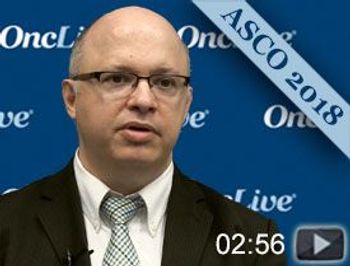
Luciano J. Costa, MD, PhD, associate professor of medicine, Blood and Marrow Transplantation and Cell Therapy Program, University of Alabama at Birmingham School of Medicine, discusses phase II findings with the triplet regimen of venetoclax (Venclexta), carfilzomib (Kyprolis), and dexamethasone in patients with relapsed/refractory multiple myeloma. Costa shared this insight in an interview with OncLive during the 2018 ASCO Annual Meeting.

The FDA has granted crizotinib a breakthrough therapy designation for the treatment of patients with metastatic non–small cell lung cancer with MET exon 14 alterations, and for use in patients with relapsed/refractory ALK+ anaplastic large cell lymphoma.

Tisagenlecleucel, sold as Kymriah, has gained its second indication following the FDA's approval of the chimeric antigen receptor T-cell therapy for the treatment of adult patients with relapsed or refractory large B-cell lymphoma, the most common form of non-Hodgkin lymphoma.

The chimeric antigen receptor T-cell therapy tisagenlecleucel has been approved for a second type of blood cancer; the National Institutes of Health has started recruiting individuals for a database that will include data on more than 1 million people; Kansas’ request to impose a 3-year lifetime limit on Medicaid benefits is testing just how open the Trump administration is to allowing states flexibility.

Keith Stewart, MB, ChB, discusses the role of stem cell transplant, minimal residual disease testing, and maintenance therapy in the treatment of patients with multiple myeloma.

C. Ola Landgren, MD, PhD, shares his insight on CAR T-cell therapy, sequencing, and triplet and quadruplet regimens in myeloma.

How are community practices coping with administering chimeric antigen receptor (CAR)-T treatments? At the 2018 Community Oncology Conference hosted by the Community Oncology Alliance, Houston Holmes, MD, MBA, FACP, Texas Oncology, shared his experience with administering CAR T-cells in a community cancer center–based setting.

Enrollment for 2018 in Affordable Care Act plans is only slightly below figures from 2017; a rare breed of antibiotic-resistant bacteria is spreading in hospitals; a new company will develop off-the-shelf CAR T-cell therapies that do not need to be personalized to the patient.

The FDA has granted a priority review to moxetumomab pasudotox for the treatment of adult patients with hairy cell leukemia who have received at least 2 prior lines of therapy.

Breakthrough gene therapy for B-cell lymphoma now available at Hackensack University Medical Center.

Ian W. Flinn, MD, PhD, discusses the impact of CAR T-cell therapy on the field of lymphoma and highlighted emerging options for the treatment of patients with MCL.
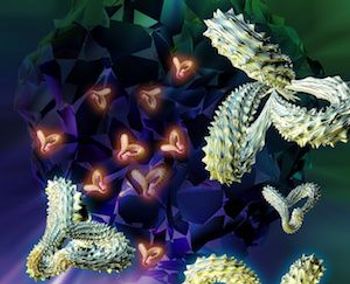
CAR T-cell therapies tisagenlecleucel (Kymriah, Novartis) and axicabtagene ciloleucel (Yescarta, Kite Pharma/Gilead) may come with hefty price tags, but the cost-effectiveness of both therapies fell below or within commonly cited thresholds of $50,000 to $150,000 per quality-adjusted life years, according to a report by the Institute for Clinical and Economic Review.

This week, the top managed care news included President Donald Trump vowing to lower drug prices during his State of the Union address; 3 corporate giants joined forces on healthcare; and CAR T-cell therapy was named the cancer advance of the year.

Chimeric antigen receptor (CAR) T-cell therapy has been named the Advance of the Year in ASCO’s Clinical Cancer Advances 2018. According to the annual report, CAR T-cell therapy is “poised to transform the outlook for children and adults with certain otherwise incurable cancers."
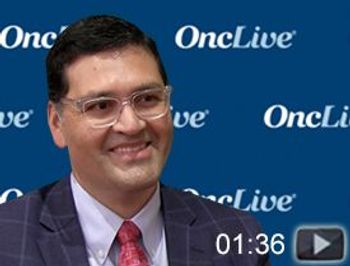
Jesus Berdeja, MD, director of Multiple Myeloma Research, Sarah Cannon Research Institute, discusses next steps with the CAR T-cell therapy bb2121 in multiple myeloma.

Nina Shah, MD, discusses immunotherapy and cellular treatments moving fast through the multiple myeloma pipeline, and the hope for CAR T-cell therapy to move up to earlier lines of treatment.

Celgene has announced plans to acquire Juno Therapeutics, maker of the CAR T-cell therapy lisocabtagene maraleucel (JCAR017), for $87 per share, totaling approximately $9 billion.

The combination of the CAR T-cell therapy axicabtagene ciloleucel and the PD-L1 inhibitor atezolizumab was highly active with a manageable safety profile in patients with refractory DLBCL enrolled in the phase I/II ZUMA-6 trial.
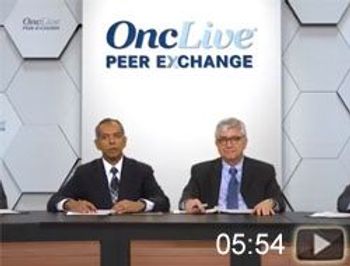

This week, the top managed care stories included the elimination of the Affordable Care Act's individual mandate; a new gene therapy for inherited vision loss that could cost $1 million; and a study found that social isolation can increase the risk of type 2 diabetes.
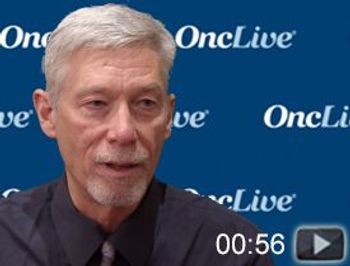
David Maloney, MD, PhD, professor of medicine, Division of Oncology, University of Washington, Clinical Research Division, Fred Hutchinson Cancer Research Center, discusses the preliminary safety data of the chimeric antigen receptor (CAR) T-cell product, JCAR017, in relapsed/refractory aggressive B-cell lymphoma.

Maintenance therapy with elotuzumab (Empliciti) and lenalidomide (Revlimid) after autologous stem cell transplant improves the quality of response achieved with induction therapy in patients with multiple myeloma.

The CAR T-cell therapy tisagenlecleucel (Kymriah) achieved an overall response rate of 53.1% in adult patients with relapsed/refractory diffuse large B-cell lymphoma.